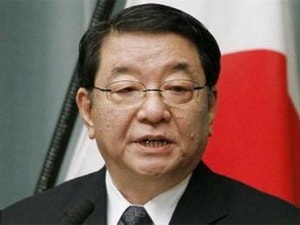South Korea and Japan to sign intelligence exchange agreement
South Korea's Yonhap news agency, citing government sources, said on June 27 that South Korea and Japan are preparing to sign a military agreement allowing the two countries to exchange military intelligence information.
According to the sources, the General Security of Military Information Agreement (GSOMIA) may be signed on June 29, or as late as next week, under which the two countries will exchange intelligence information on North Korea as well as its nuclear and missile programs.
The South Korean cabinet reportedly agreed to sign the GSOMIA during a meeting on June 26. If signed, it would be the first military cooperation agreement between Japan and South Korea since the end of Japan's colonial rule of the Korean Peninsula in 1945.

Mr. Osamu Fujimura said the discussion process on GSOMIA is in the final stage. (Source: Internet)
Meanwhile, Kyodo news agency reported that Japan is also expected to complete procedures this week to sign the above agreement.
Speaking at a regular press conference in Tokyo on June 27, Chief Cabinet Secretary and top government spokesman Osamu Fujimura said the discussion process between the two countries on GSOMIA is in the final stage, and affirmed that a military intelligence sharing agreement with South Korea is "extremely important."
The idea of signing GSOMIA was mentioned by the Japanese and South Korean defense ministers during a bilateral meeting in January 2011.
Japan has already signed similar intelligence-sharing agreements with the United States, Australia, France and the North Atlantic Treaty Organization (NATO).
Meanwhile, South Korea also has bilateral agreements with 24 countries, including the US, Russia, UK, Canada and Australia.
Last month, South Korea and Japan planned to sign an intelligence-sharing pact along with another on logistics support and cooperation in overseas peacekeeping operations, during a visit to Japan by South Korean Defense Minister Kim Kwan Jin.
However, the visit was canceled, reportedly due to Seoul's concerns about domestic public opinion in South Korea opposing military cooperation with Japan, related to the sovereignty dispute between the two countries over the island group that South Korea calls Dokdo and Japan calls Takeshima, as well as anti-Japanese sentiment due to memories of the colonial period./.
According to VNA - DT






